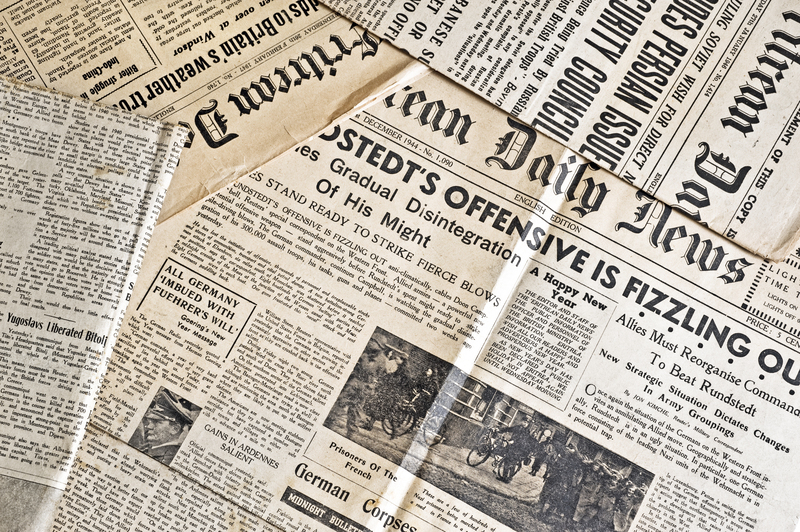Disposing of a Relative's Property
Posted on 18/11/2024
```html
Disposing of a relative's property can be an emotionally challenging task. Whether due to a passing, a move to assisted living, or a downsizing decision, you may suddenly find yourself responsible for managing their possessions. The process can be overwhelming, but with careful planning and organization, you can handle it efficiently and respectfully.
Before you start disposing of a relative's property, it's crucial to understand your role. Are you the executor of the estate, or have you been appointed to manage the property by a court? Knowing your legal obligations will help you navigate the process while ensuring that you act within the law.
Start by taking inventory of all items. List everything in the house, from valuable antiques to everyday items. Once you have a complete list, the next step is to appraise the items' value. Consider hiring a professional appraiser for valuable items like jewelry, art, and collectibles. This will help you make informed decisions on what to keep, sell, or donate.
Sentimental items can be the hardest to part with. Take time to sort through personal belongings and decide what you or other family members would like to keep. Family heirlooms, photo albums, and handmade items often hold sentimental value that goes beyond their monetary worth.
Once you've set aside the sentimental items, you need to decide what to do with the rest. Here are some options:
The process of decluttering can be time-consuming, but it's essential. Rent a dumpster or arrange for bulk pick-up services to dispose of non-valuable and non-recyclable items. Clear out broken furniture, outdated appliances, and other items that have no significant value.
To make the disposal process smoother, consider the following tips:
Disposing of a relative's property is more than a task; it's a journey through their life and memories. While the process can be emotionally draining, it can also offer a sense of closure. By approaching this responsibility with care, respect, and organization, you can honor your relative's memory while also reclaiming space for new beginnings.
Pros:
Cons:
- Understand your legal role and obligations.
- Inventory and appraise items before making decisions.
- Consider the options for valuables: sell, donate, or recycle.
- Efficiently dispose of non-valuable items.
- Plan and organize to navigate the process smoothly.
By following these steps and tips, you can manage the disposition of a relative's property with sensitivity and efficiency.
Introduction: The Emotional and Practical Challenges
Disposing of a relative's property can be an emotionally challenging task. Whether due to a passing, a move to assisted living, or a downsizing decision, you may suddenly find yourself responsible for managing their possessions. The process can be overwhelming, but with careful planning and organization, you can handle it efficiently and respectfully.

Understand Your Role and Legal Obligations
Before you start disposing of a relative's property, it's crucial to understand your role. Are you the executor of the estate, or have you been appointed to manage the property by a court? Knowing your legal obligations will help you navigate the process while ensuring that you act within the law.
Inventory and Appraise the Items
Start by taking inventory of all items. List everything in the house, from valuable antiques to everyday items. Once you have a complete list, the next step is to appraise the items' value. Consider hiring a professional appraiser for valuable items like jewelry, art, and collectibles. This will help you make informed decisions on what to keep, sell, or donate.
Determine What Is Important to Keep
Sentimental items can be the hardest to part with. Take time to sort through personal belongings and decide what you or other family members would like to keep. Family heirlooms, photo albums, and handmade items often hold sentimental value that goes beyond their monetary worth.
Handling Valuables: Sell, Donate, or Recycle
Once you've set aside the sentimental items, you need to decide what to do with the rest. Here are some options:
- Sell: You can sell valuables through auctions, estate sales, or online marketplaces. For items of significant value, consider professional sellers who can get a fair price.
- Donate: Many organizations accept donations of gently used items. This can be a gratifying option, especially for items that may not have significant resale value but are still useful.
- Recycle: For items that can't be sold or donated, recycling is a responsible choice. Electronics, metals, and certain types of plastics can often be recycled.
Declutter and Dispose of Non-Valuable Items
The process of decluttering can be time-consuming, but it's essential. Rent a dumpster or arrange for bulk pick-up services to dispose of non-valuable and non-recyclable items. Clear out broken furniture, outdated appliances, and other items that have no significant value.
Tips for Efficient Disposal
To make the disposal process smoother, consider the following tips:
- Start Early: Give yourself plenty of time to sort through everything. Rushing can lead to mistakes.
- Enlist Help: Family members, friends, or professional organizers can provide valuable assistance.
- Stay Organized: Keep a record of what has been sold, donated, or discarded. This can be helpful for tax purposes and future reference.
- Respect the Process: Take breaks when needed to avoid burnout. This is an emotional process, and it's important to take care of your mental health.
Conclusion: Finding Closure
Disposing of a relative's property is more than a task; it's a journey through their life and memories. While the process can be emotionally draining, it can also offer a sense of closure. By approaching this responsibility with care, respect, and organization, you can honor your relative's memory while also reclaiming space for new beginnings.

Pros and Cons
Pros:
- Provides closure and a sense of completion.
- Opportunity to rediscover family heirlooms and memories.
- Potential financial gain from selling valuable items.
- Community support through donations.
Cons:
- Emotionally challenging and stressful.
- Time-consuming and labor-intensive.
- Possibility of family disputes over possessions.
- Costs associated with appraisals, sales, and disposal.
Takeaways
- Understand your legal role and obligations.
- Inventory and appraise items before making decisions.
- Consider the options for valuables: sell, donate, or recycle.
- Efficiently dispose of non-valuable items.
- Plan and organize to navigate the process smoothly.
By following these steps and tips, you can manage the disposition of a relative's property with sensitivity and efficiency.

Copyright © . House Clearance Hounslow. All Rights Reserved.